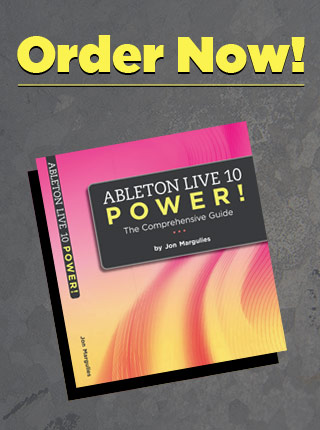When you’re changing the tempo of a song and you need to keep the pitch the same, your best bet is to pick the warp mode on a case by case basis. If you’re going to be both slowing down and speeding up a song, make sure to listen to it faster and slower. In general, its trickier for software to slow down audio and stretch it out, so this is usually where the most noticeable artifacts occur.
Beats mode works well for lots of stuff, particularly dance music or anything that is heavily percussive in nature. The problem with beats mode is that since it’s optimized for the preservation of transients, it can also create percussive artifacts in parts of the sound that are supposed to be smooth such as synth pads or bass lines. The Transient Loop mode can have a big impact on the sound quality (especially when slowing down a song), so experiment with this:
I’ve found myself using Off mode (highlighted above) quite a bit lately – not because it sounds more natural, but because I like the choppiness it imparts to some pieces of music. Generally, I like the results that I get from preserving Transients, but once in a while 1/16 works well too.
Tones and Texture mode work well with acapellas, ambient music and so on. Some folks are fans of using Texture mode for entire songs, but I’ve never liked the results much.
Complex mode is primarily useful for sound design. (Try dramatically tempo or pitch shifting audio with this mode and you’ll hear what I mean). It can sound decent on individual parts, but for entire songs, Complex Pro generally blows it out of the water. If I can’t use Re-Pitch or Beats, then Complex Pro is my choice. The downside of the Complex modes is a strange high frequency distortion and a smoothing out of the transients (it also uses a lot of CPU). The upside is that it can do really big tempo shifts and still produce convincing results. It’s also a great help when transposing vocals; because it corrects formants you can tune that vocal part up or down a few steps or a third without it sounding like a chipmunk or a troll.





